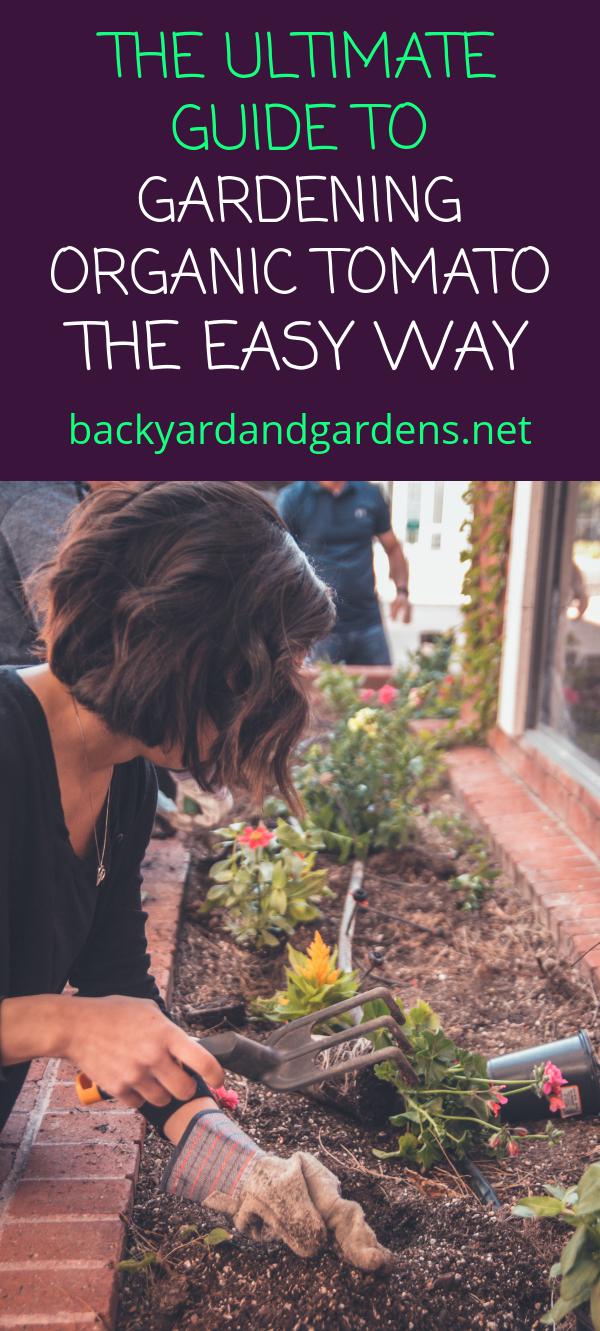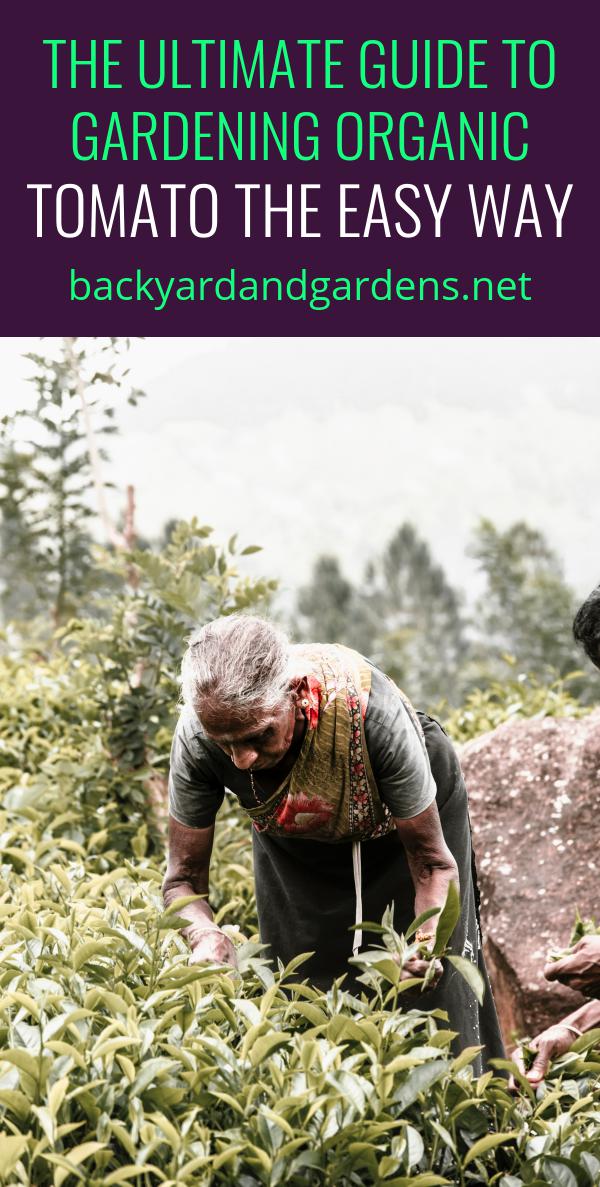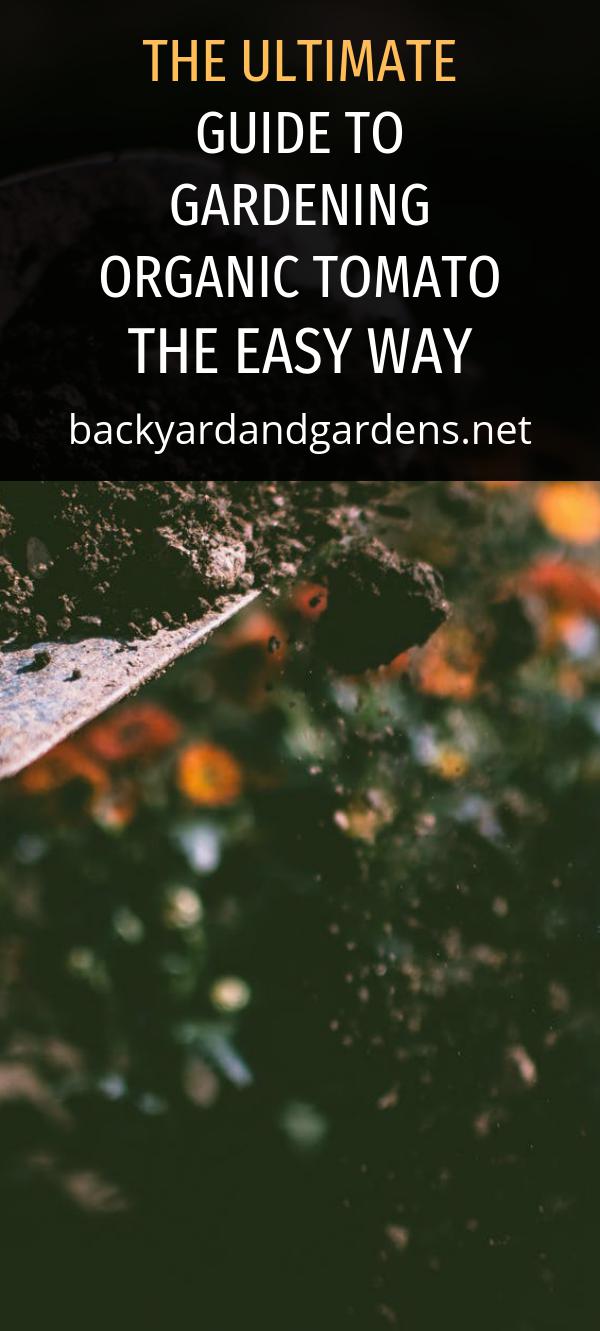The Ultimate Guide to Gardening Organic Tomato the Easy Way
I bet you have already seen organic vegetables being sold in supermarkets. Nowadays, the area dedicated to organic produce in supermarkets is growing and more. It used to be that people are going organic as a matter of alternative, lifestyle changes, or making a statement. But today, organic food has become more conventional rather than an alternative. The benefits of organic gardening can never be observed more in the area of commercial agricultural products such as fruits and vegetables. Tomatoes, for example, are becoming bigger, rounder, redder, and fresher through organic gardening than previous cultivation methods. Gardening organic tomato is really not a mystery but rather involves balancing the health of the environment and the plant itself.
When planting tomatoes using organic gardening, it is important to note that healthy tomato plants will be able to repel pests and diseases better. There are a number of ways to make certain that your tomato plants are healthy. For one, you could start by buying plants or seeds from disease-free varieties. Local varieties usually have a developed adaptive mechanism that protects them from common pests and diseases.

Tomatoes can be divided into determinate and indeterminate. The first variety will grow to a certain extent and then stops. Unlike the indeterminate variety where the tomato vines continue to grow which is why you need to provide support for the plants when you cultivate these kinds of variety.
Planting tomatoes in an organic way means you need very healthy soil. Note that healthy soils are rich with fungi, bacteria, and other organisms that are good for your tomato plants. You need to understand that ordinary backyard or front yard soils are not often sufficient to provide tomato plants with the sustenance they need. The key to growing great tomatoes is good quality soil.
This is the reason why other people are tempted to use chemical fertilizers, pesticides, or herbicides to augment the poor quality of their current soils. Although using chemical fertilizers does offer quick results, it is not the true way of organic gardening.
Just like any other organic gardening, the use of composts in your tomato gardens is very important. By adding composts, the soil will become healthier and will be able to provide a better source of nutrients for your tomato plants.
Now pests are common occurrences and in your tomato garden, one of the most common and most damaging is the Tomato hornworms. These are large caterpillars and mostly found in the Northern parts of America. They can cause a lot of damage not only in tomatoes but in eggplants, pepper, tobacco, and potatoes when they are left to themselves.
If you notice any Tomato hornworms in your garden, you should start with pest control as soon as possible. The most basic and remains one of the most effective in dealing with pests is to get down and handpick the caterpillars from the plant’s leaves or stem.

Another option would be to release in your garden natural predators and in the case of Tomato hornworms, lady beetles or lacewings are effective friendly insects. These insects will attach the eggs of the hornworms destroying them from the source.
Gardening organic tomato can be very easy, all you need a simple guide, a sample pamphlet maybe, or a brochure. Just remember that organic gardening will require special care and attention.
